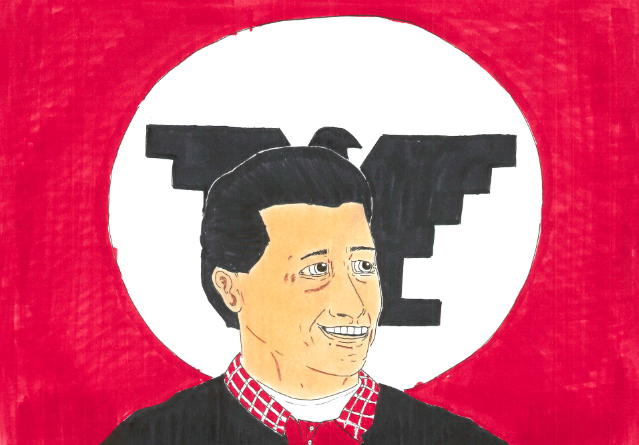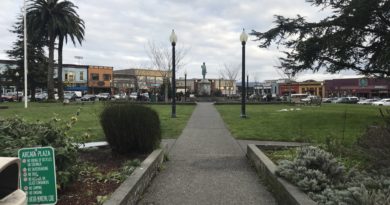Shades of a Leader: Remembering the multifaceted character of César Chávez
Every year on March 31, countless people across the U.S. come together to honor the legacy of César Chávez. Following the proclamation made by President Barack Obama in 2011, more than five states formally observe the holiday in the spirit of community and action.
“Our Nation’s story of progress is rich with profound struggle and great sacrifice, marked by the selfless acts and fearless leadership of remarkable Americans,” Obama said. “A true champion for justice, César Chávez advocated for and won many of the rights and benefits we now enjoy, and his spirit lives on in the hands and hearts of working women and men today.”
The movement was a force that had yet to be seen, with solidarity not just among the Latinx and Filipino farm workers, but with a backing from the nation and the world abroad. It was a moral campaign for the campesinos, or the peasant farm worker, but not everybody was welcomed at first.
Having grown up in both Arizona and California, Chávez started as a Mexican-American farm worker in the fields and eventually rose in the community as a labor leader and a civil rights activist. With Dolores Huerta as his co-founder, Chávez led the United Farm Workers (UFW) throughout the 1960s after the critical merge with the Agricultural Workers Organizing Committee led by Filipino union organizer Larry Itliong.
Between 1942 and 1964, the United States had enacted the Bracero program, which offered migrant workers temporary work contracts to provide manual labor in agriculture. However, Chávez was largely outspoken against immigration as he felt it would undermine the purpose of the UFW and the rights of both U.S workers and undocumented migrant workers.
Due to the nature of the Bracero program, Chávez argued the influx of cheap labor made undocumented migrant workers expendable. Not wanting to risk their livelihood, the undocumented workers could not speak out for their rights and inadvertently became strikebreakers or a person who would not join a strike or labor union and assumes the job responsibilities of a striking worker.
However, the opposition went beyond policy. Throughout the late 1960s and early 1970s, Chávez and the UFW led what some would call anti-immigrant events. They marched throughout central California in protest of migrant worker labor, held “wet lines” along the U.S-Mexico border to prevent undocumented immigrants from entering the country, and even reported undocumented workers deemed to be strikebreakers to the Immigration and Naturalization Service (part of what is now known as U.S. Immigration and Customs Enforcement [ICE]).
The language used by Chávez and those against immigration was also effective in creating barriers within communities. In a 1972 interview with KQED, a PBS television station, Chávez spoke out against undocumented workers during a strike.
“One of the strikes we have with the Butte gas and oil company where we’ve closed them down and they’ve been unable to get strikebreakers or have gotten very few,” Chávez said. “Then all of sudden yesterday morning they brought in 220 wetbacks. These are the illegals from Mexico.”
Despite the early opposition and exclusion of undocumented immigrants within the movement, Chávez was crucial in advocating and achieving the amnesty provision of the Immigration Reform and Control Act of 1986. The act was critical in granting amnesty to nearly three million undocumented immigrants.
Today, Chávez is a figure in our history that fought for the rights of those made to feel powerless. Like most others, however, he was not perfect nor alone in changing the world. As we remember him each year, we should not forget every aspect that made him who he was. With current narratives and language reminiscent of both his and the UFW’s stance against immigration, we shouldn’t forget how he impacted people’s lives for good and bad. Moreover, we should honor the room for growth we all possess, and the ability to find strength and empowerment from others despite difference and opposition.
“We cannot seek achievement for ourselves and forget about progress and prosperity for our community… Our ambitions must be broad enough to include the aspirations and needs of others, for their sakes and for our own.” – César Chávez




